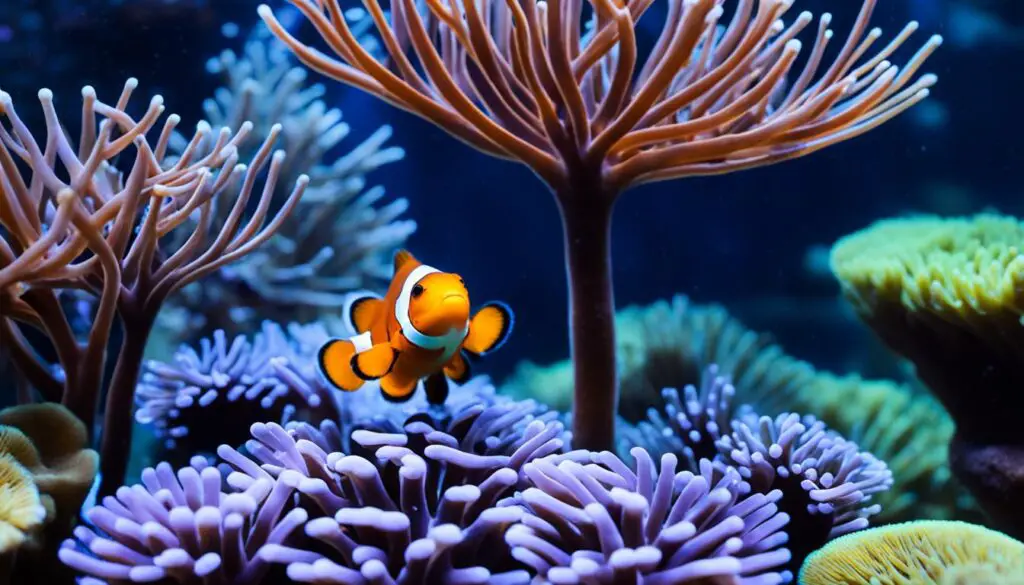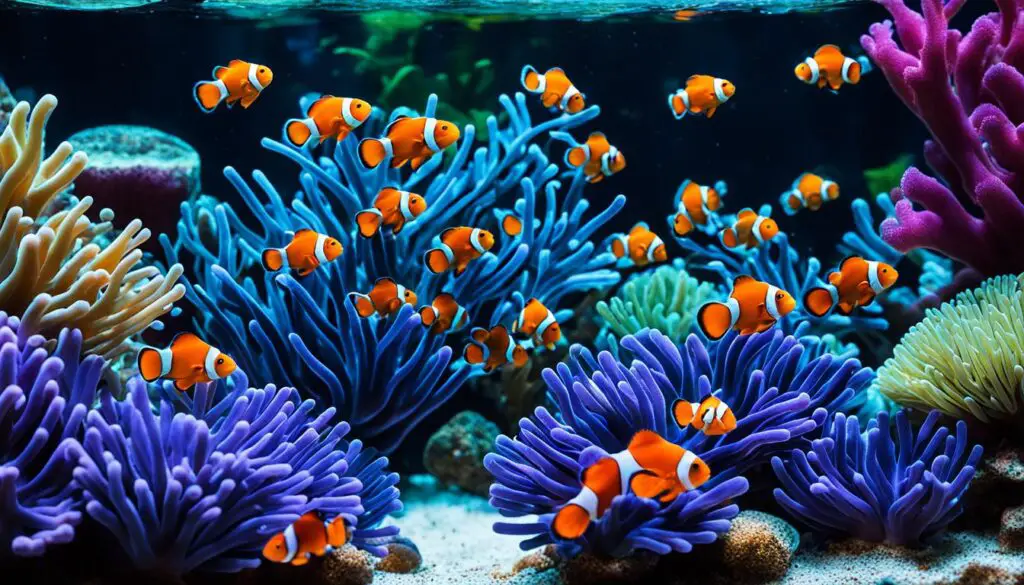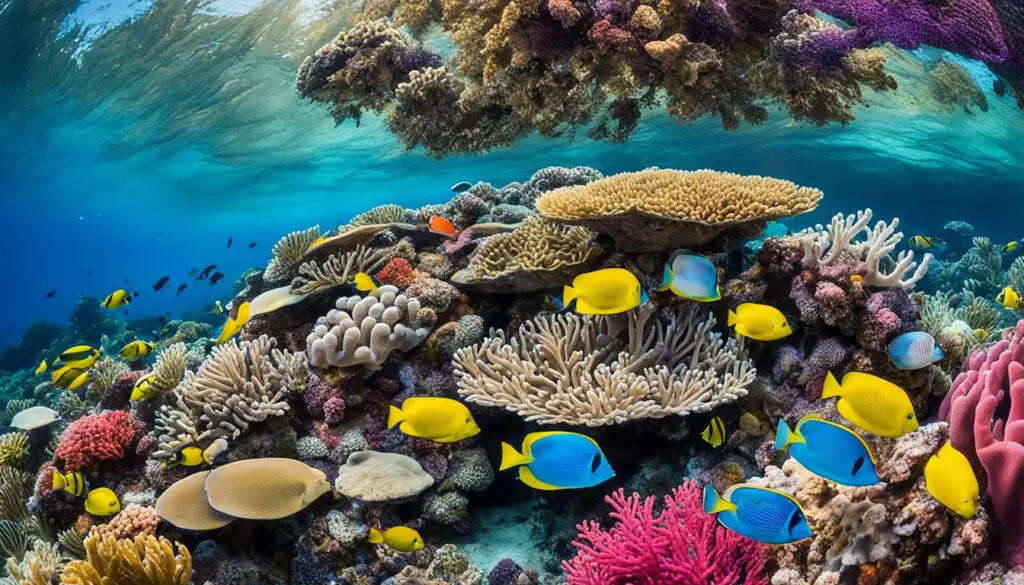Coral Reef Conservation Efforts: Rallying for Reefs: Uniting Efforts for Coral Reef Conservation!
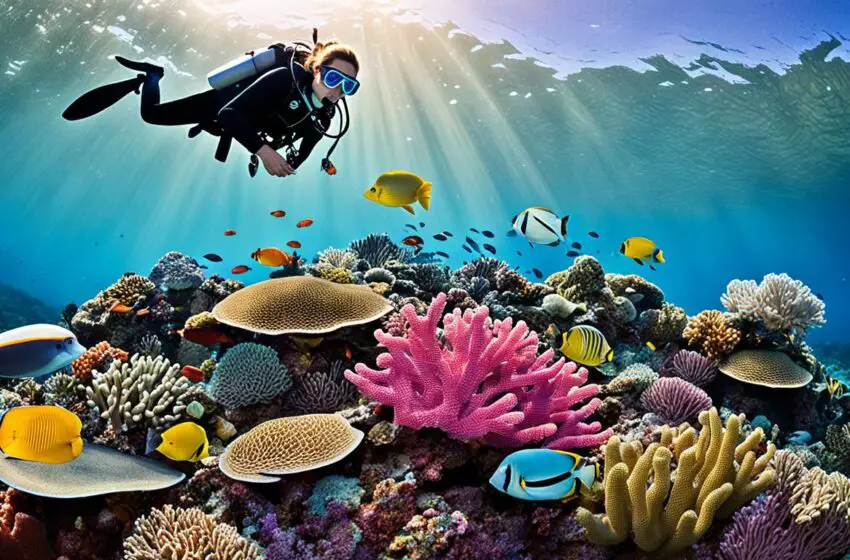
Being a big fan of the ocean, it worries me to see coral reefs disappearing fast. These areas are home to many sea creatures. They offer safety and a place to find food. But, they are now in danger because of several reasons.
Recent reports show a 14 percent drop in coral reefs since 2009. And unless we act quickly, we might lose 90 percent of what’s left by 2050. This is not just a loss for marine life. It also affects the millions who rely on these reefs for jobs and food.
The Coral Reef Breakthrough initiative is working to change this. Their goal is to protect at least 125,000 km2 of reefs by 2030. This effort could help over 500 million people stay safe and keep their jobs by saving the coral reefs.
It’s more important than ever for everyone to pitch in for the reefs. We need both the public and those in charge of businesses to help. Together, our actions can really make a difference for the future of coral reefs.
Key Takeaways:
- Coral reefs have seen a sharp 14 percent decrease since 2009.
- The Coral Reef Breakthrough initiative aims to save 125,000 km2 of these vital reefs.
- Looking after coral reefs is key for over 500 million people’s safety and jobs.
- Both the public and private groups must work together to protect the reefs.
- United, we stand a better chance to save the vital coral reef ecosystems.
The Coral Reef Breakthrough: Protecting Reefs Through Action
The International Coral Reef Initiative (ICRI) launched The Coral Reef Breakthrough. It aims to safeguard over 125,000 km2 of coral reefs. This is very important because many reefs are dying, threatening sea life and our planet’s health.
This initiative focuses on four important steps:
- Stopping drivers of reef loss: The project fights against pollution and overfishing. This helps stop further harm to the reefs.
- Doubling the area of coral reefs under effective protection: It plans to make more areas safe for marine life. This will make the reefs stronger.
- Accelerating restoration efforts: Restoration work is key. The initiative will use science to help reefs grow back where they’ve been hurt.
- Securing investments of at least US$12 billion by 2030: Money is needed to save the reefs. The goal is to get $12 billion by 2030 for their repair and protection.
“The Coral Reef Breakthrough represents a critical turning point in our collective efforts to protect and restore coral reefs. Through comprehensive action and strategic investments, we can prevent further loss and restore the health and resilience of these invaluable ecosystems.” – [Insert Quote Attribution]
To succeed, this initiative needs everyone’s help. Governments, groups, and local people must work together. This sharing of skills and resources makes their goals reachable.
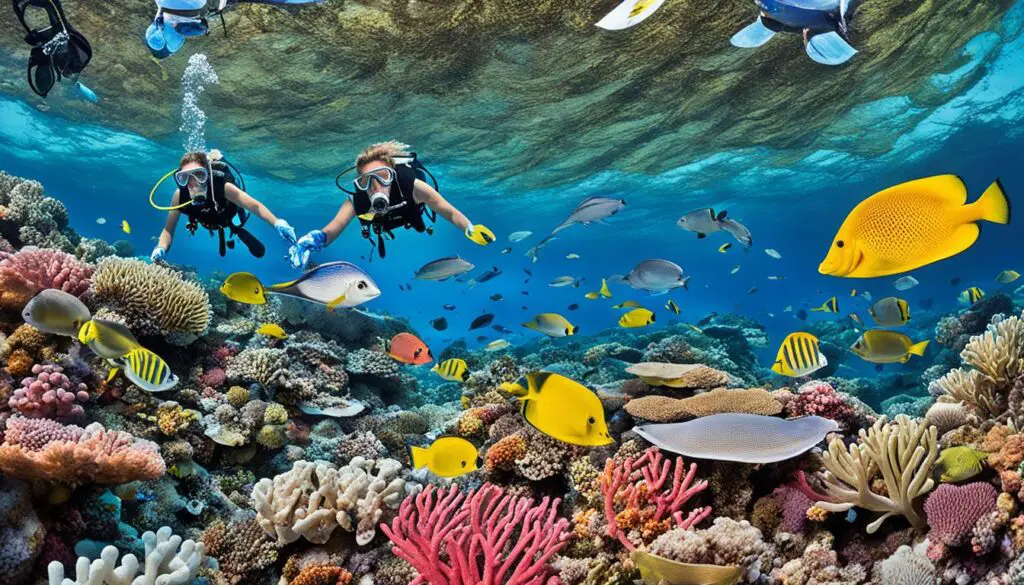
The GFCR also supports The Coral Reef Breakthrough. It’s a key financial backer for reef projects globally. They find money to save and rebuild coral reef areas.
We all have a chance to help save the coral reefs. By tackling what harms them, making more safe places, and increasing support, we can help the reefs and the oceans. This effort is vital for the life in our seas and for those who depend on them.
The Importance of Collaboration and Science-Based Solutions
Reaching the goals of the Coral Reef Breakthrough needs everyone to work together. This includes both the public and private groups around the world. The effort has gotten help from the ICRI, a global group that cares for coral reefs.
The ICRI wants to use what science tells us to make real changes. They aim to get leadership stronger and to use new technology. This helps them and everyone working with them talk and work together better. Their goal is to save and grow coral reefs.
With the world getting warmer and human activities harming the sea, this work is very important. The Coral Reef Breakthrough, with the help of ICRI, is setting up clear goals to save the reefs. They are using what scientists have found out to plan the best way forward. Their hope is to create real and doable plans that can help reefs now and for a long time to come.
FAQ
What is the Coral Reef Breakthrough initiative?
The Coral Reef Breakthrough initiative is a global effort launched by the International Coral Reef Initiative (ICRI). It aims to secure the future of 125,000 km2 of tropical coral reefs. These are to be protected through specific actions.
What are the key action points of the Coral Reef Breakthrough initiative?
The initiative focuses on stopping drivers of reef loss. It also aims to double the area of protected coral reefs and speed up restoration efforts. The goal is to secure at least US billion by 2030 to help conserve and restore these ecosystems.
How does the Coral Reef Breakthrough prevent the functional extinction of coral reefs?
It tackles local threats like pollution and overfishing to keep coral reefs from dying out. The initiative also sets up sustainable ways to keep these reefs healthy.
What is the Global Fund for Coral Reefs?
The Global Fund for Coral Reefs (GFCR) plays a big role in supporting the initiative financially. It highlights the value of money put into the conservation and restoration of coral reefs.
Who supports the Coral Reef Breakthrough initiative?
The International Coral Reef Initiative (ICRI) helps lead this initiative. It’s a global group that brings countries and organizations together. They are all focused on saving coral reefs.
What is the role of the International Coral Reef Initiative (ICRI)?
The ICRI uses science to guide action. It also improves leadership and new technologies. Plus, it helps different groups work together and talk to each other about saving coral reefs.
Why is collaboration important for coral reef conservation?
Teamwork is vital for saving coral reefs because global efforts are needed. Public and private groups must work together. This is the only way to truly protect and rebuild these vital ecosystems.
What are science-based solutions in coral reef conservation?
Science-based solutions are conservation plans based on real scientific data. They make sure our efforts effectively safeguard coral reefs. With science as our guide, we are more likely to succeed.
How does climate change affect coral reefs?
Climate change is a severe danger to coral reefs. It leads to hotter seas, more acidic oceans, and harsh storms. These can cause coral bleaching, diseases, and even the death of entire reef systems.

